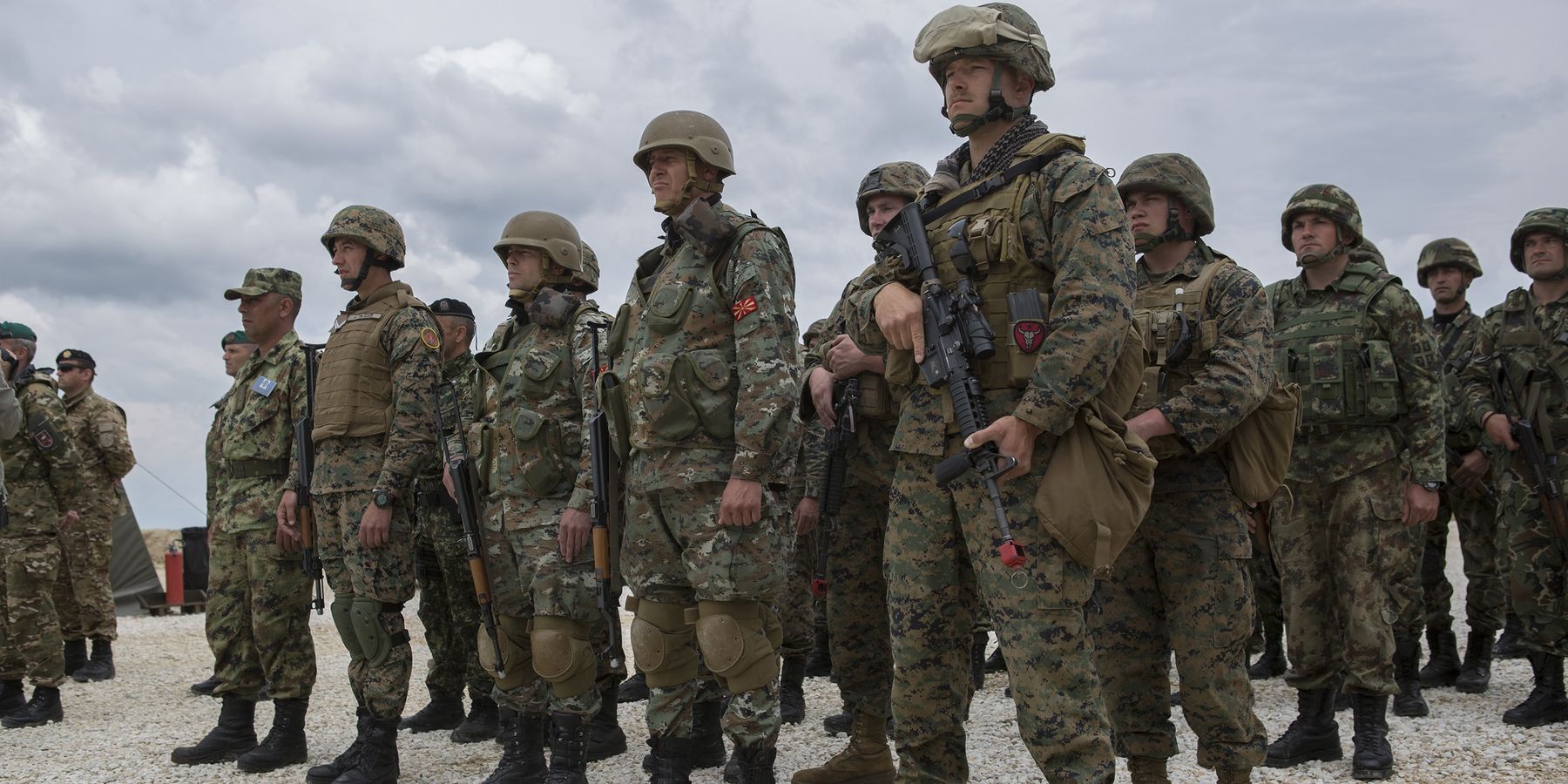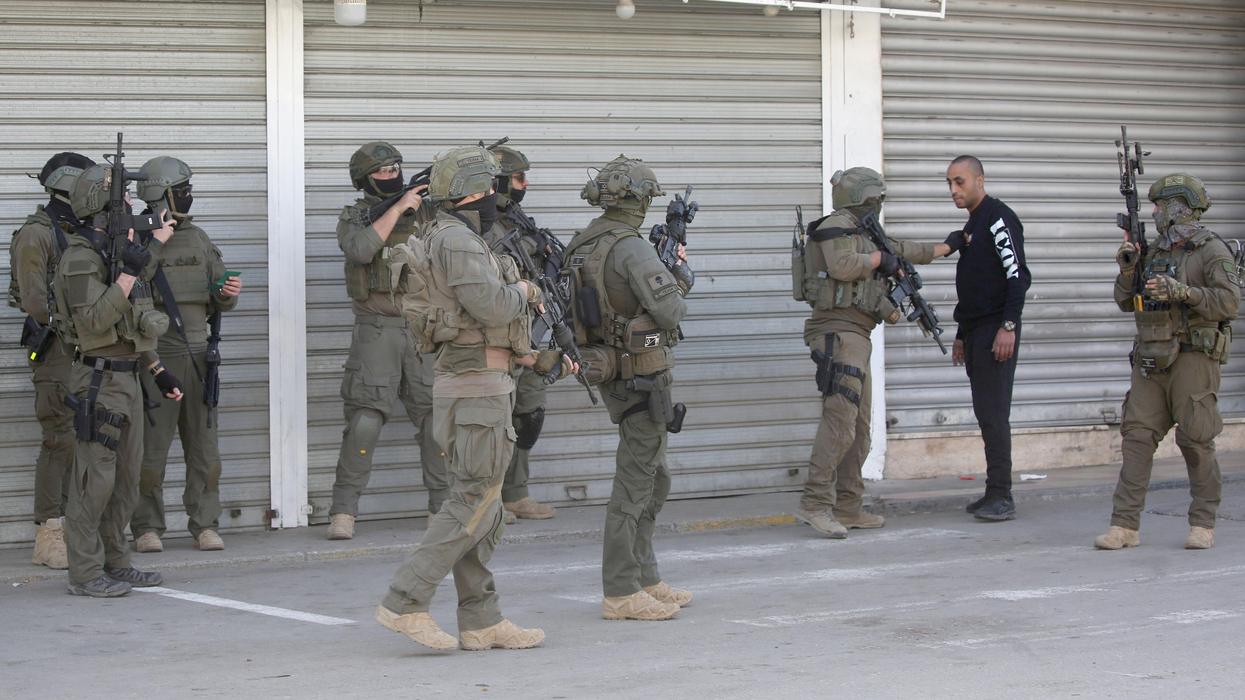President-elect Trump is reportedly advancing the idea that a large and heavily armed peacekeeping force from Europe (but including NATO members) could be introduced into Ukraine as part of a peace settlement there. It is important that this very ill-thought-out idea be shot down before it does serious damage to the prospects for an early peace and causes Ukraine still further human, economic and territorial loss.
According to the Wall Street Journal and Le Monde, this idea first emerged in private talks between French and British officials in November. It was discussed on Thursday by NATO foreign ministers in Brussels. Trump made the suggestion to French President Emmanuel Macron and Ukrainian President Volodymyr Zelensky at a meeting in Paris on December 7.
Macron then traveled to Warsaw to discuss a plan for 40,000 heavily armed European “peacekeepers” with the Polish government whose officials, however, have so far given it a cool public response. In the words of Polish Prime Minister Donald Tusk: “To cut off speculation about the potential presence of this or that country in Ukraine after reaching a ceasefire, ... decisions concerning Poland will be made in Warsaw and only in Warsaw. At the moment we’re not planning such activities.”
Friedrich Merz of the German Christian Democrats, almost certain to be chancellor after the elections due in February, has also distanced himself from the idea.
On the face of it, this idea might seem to reconcile several mutually contradictory pressures on the Ukrainian peace process: The Russian demand for a treaty that will permanently bar Ukraine from NATO membership; the Ukrainian demand for Western guarantees against future Russian aggression; Trump’s determination not to put U.S. troops on the ground or make additional and permanent U.S. commitments to Ukraine; and the real need for a substantial international force to patrol an armistice line.
There is just one problem: According to every Russian official and expert with whom my colleagues and I have spoken (most recently on Thursday), the idea of Western troops in Ukraine is just as unacceptable to the Russian government and establishment as NATO membership for Ukraine itself. Indeed, the Russians see no essential difference between the two.
Seen from Moscow, such a Western “peacekeeping force” would be simply a NATO advance guard that would provide cover for the gradual introduction of more and more NATO forces. Indeed, while President Zelensky has said that Ukraine “may consider” the idea of peacekeepers, it would only do so if it is also given a clear timeline for future NATO membership. If this proposal is put forward by General Kellogg, President-elect Trump’s choice as his Ukraine envoy, in negotiations, the Russian side will therefore reject it out of hand; and if it is insisted on, the talks will fail.
However, it seems likely that once European establishments — and populations — have had time to think about this idea, they will in fact let it drop. For the soldiers in this force would be placed in a position of considerable danger, which it is unlikely that their fellow citizens would tolerate. When Macron first suggested French troops for Ukraine earlier this year, opinion polls showed overwhelming majorities of French citizens opposing the idea.
The dangers should indeed be obvious. On the one hand, Ukrainians determined to regain Ukraine’s lost territories by provoking a direct war between NATO and Russia would have every incentive to try to create armed clashes into which the Western “peacekeepers” would be drawn.
On the other hand, if Moscow really wanted to test NATO and take advantage of future internal splits in the West, how better to do it than to threaten NATO “peacekeepers” in Ukraine rather than on NATO territory and thus not covered by NATO’s Article 5? There is either a deep cognitive dissonance or a deep dishonesty in Western hawks who warn about an alleged future Russian threat to “test NATO’s resolve” in the Baltic states proposing to give Russia a far greater and more plausible opportunity to do so in Ukraine.
In these circumstances, it seems obvious that in order for European governments and their military chiefs to agree to such a proposal even in principle, they would require ironclad and public guarantees from the Trump administration that the U.S. military would intervene with full force to rescue their “peacekeepers” if they did come under Russian attack.
This would mean very much the kind of commitment to Ukraine and to potential war with Russia that Trump and leading members of his team are determined to avoid. As the Journal article says, “French officials have made clear that the idea would need to involve some kind of U.S. backup, something it isn’t clear a Trump administration would consider.”
These factors are hardly obscure or hard to understand. Even if this is just a trial balloon, it is visibly full of holes, and the fact that it can have been hoisted even a few feet off the ground is therefore worrying. The appearance of this idea suggests that Trump and the European governments involved have received highly inaccurate information from their advisers about basic Russian positions. This suggests either extremely poor intelligence, or on the other hand that the advisers concerned are setting out deliberately to wreck a peace settlement. If so, then they are no friends to Ukraine; for every indication suggests that the longer this war goes on, the worse Ukraine’s position will become.
- Just how many US troops and spies do we have in Ukraine? ›
- Paris Summit was theater, and much ado about nothing | Responsible Statecraft ›
- The flimsy UK, France, Ukraine 'peace plan' discussed Sunday | Responsible Statecraft ›
- Report: NATO, US heavily involved in post-war Ukrainian security | Responsible Statecraft ›
















